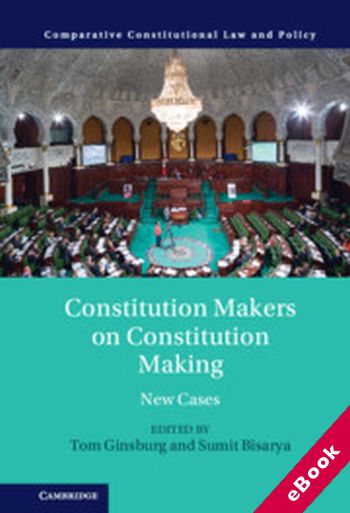
The device(s) you use to access the eBook content must be authorized with an Adobe ID before you download the product otherwise it will fail to register correctly.
For further information see https://www.wildy.com/ebook-formats
Once the order is confirmed an automated e-mail will be sent to you to allow you to download the eBook.
All eBooks are supplied firm sale and cannot be returned. If you believe there is a fault with your eBook then contact us on ebooks@wildy.com and we will help in resolving the issue. This does not affect your statutory rights.
Constitution-making is a major event in the life of a country, with constitutions often acting as a catalyst for social and political transformation. But what determines the visions, aspirations and compromises that go into a written constitution? In this unique volume, constitution makers from countries around the world come together to offer their insights. Using a collection of case studies from countries with recently written constitutions, Constitution Makers on Constitution Making provides a common framework to explain how constitutions are created. Scholars and practitioners very close to the process illuminate critical insights into how participants see constitutional options, how deadlocks are broken, and how changes are achieved. This vital volume also draws lessons concerning the role of courts in policing the process, on international involvement, and on public participation.